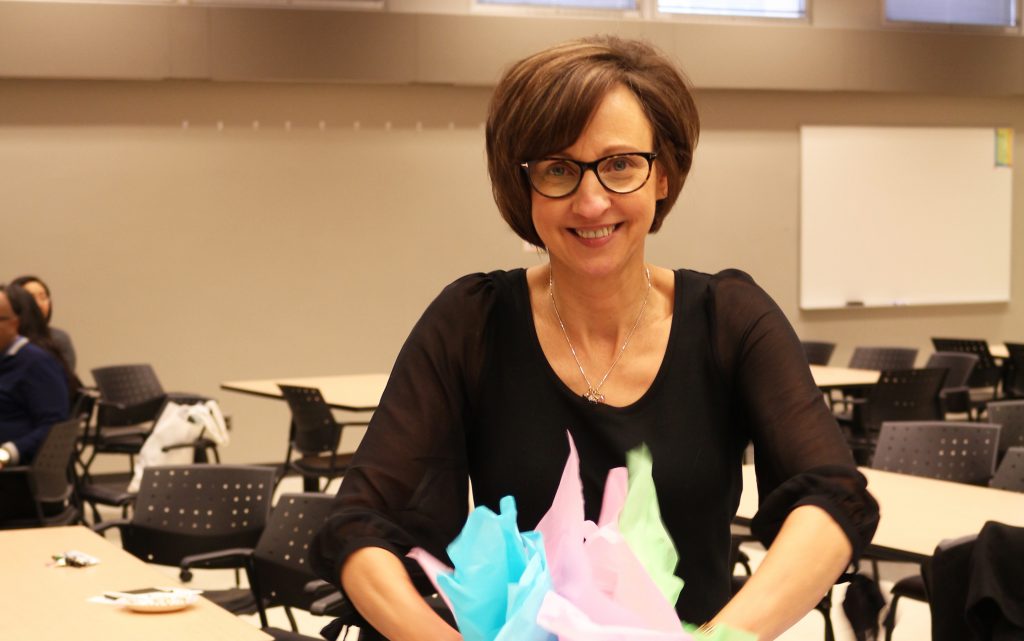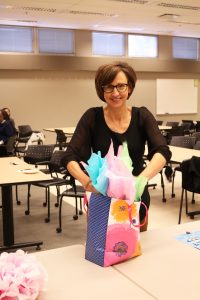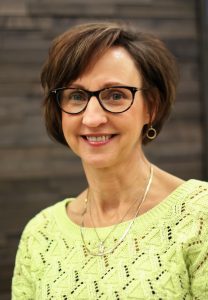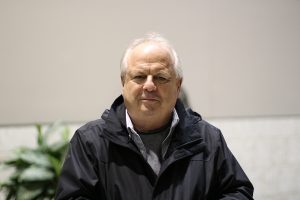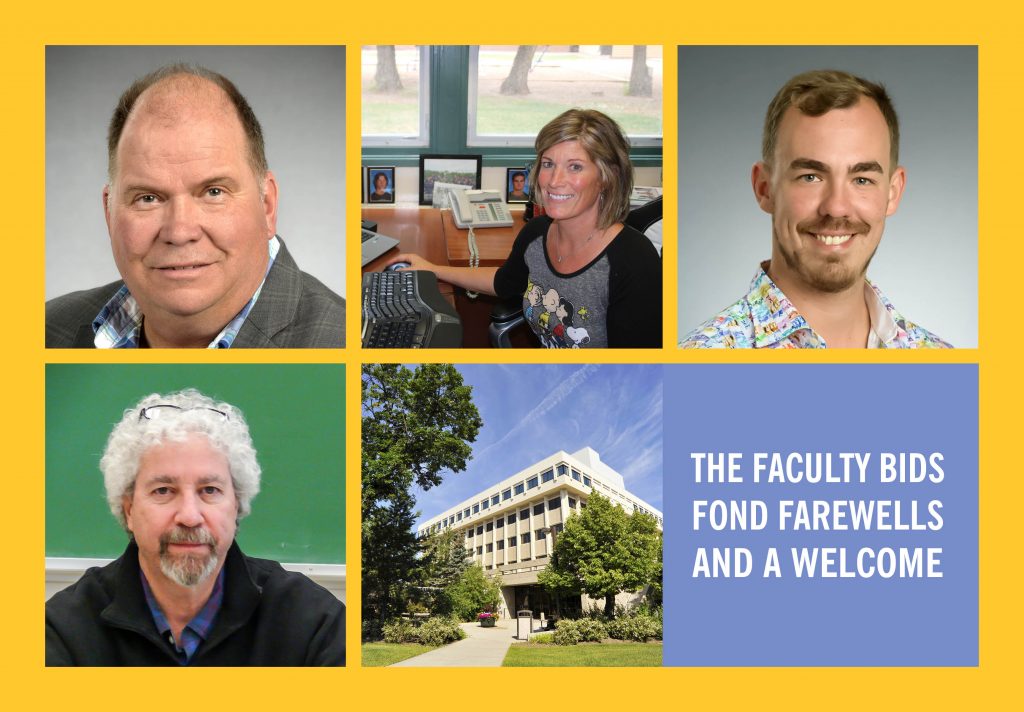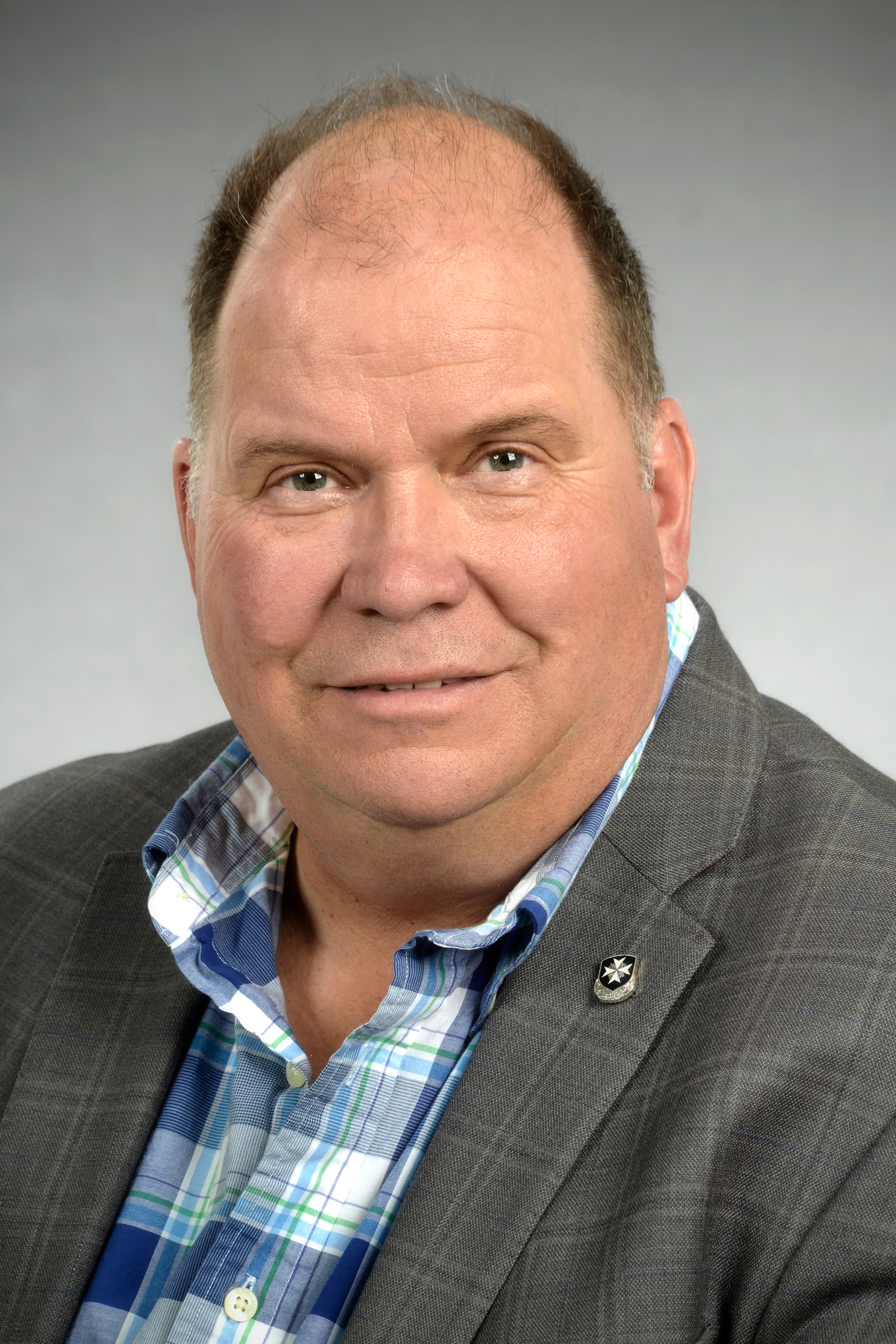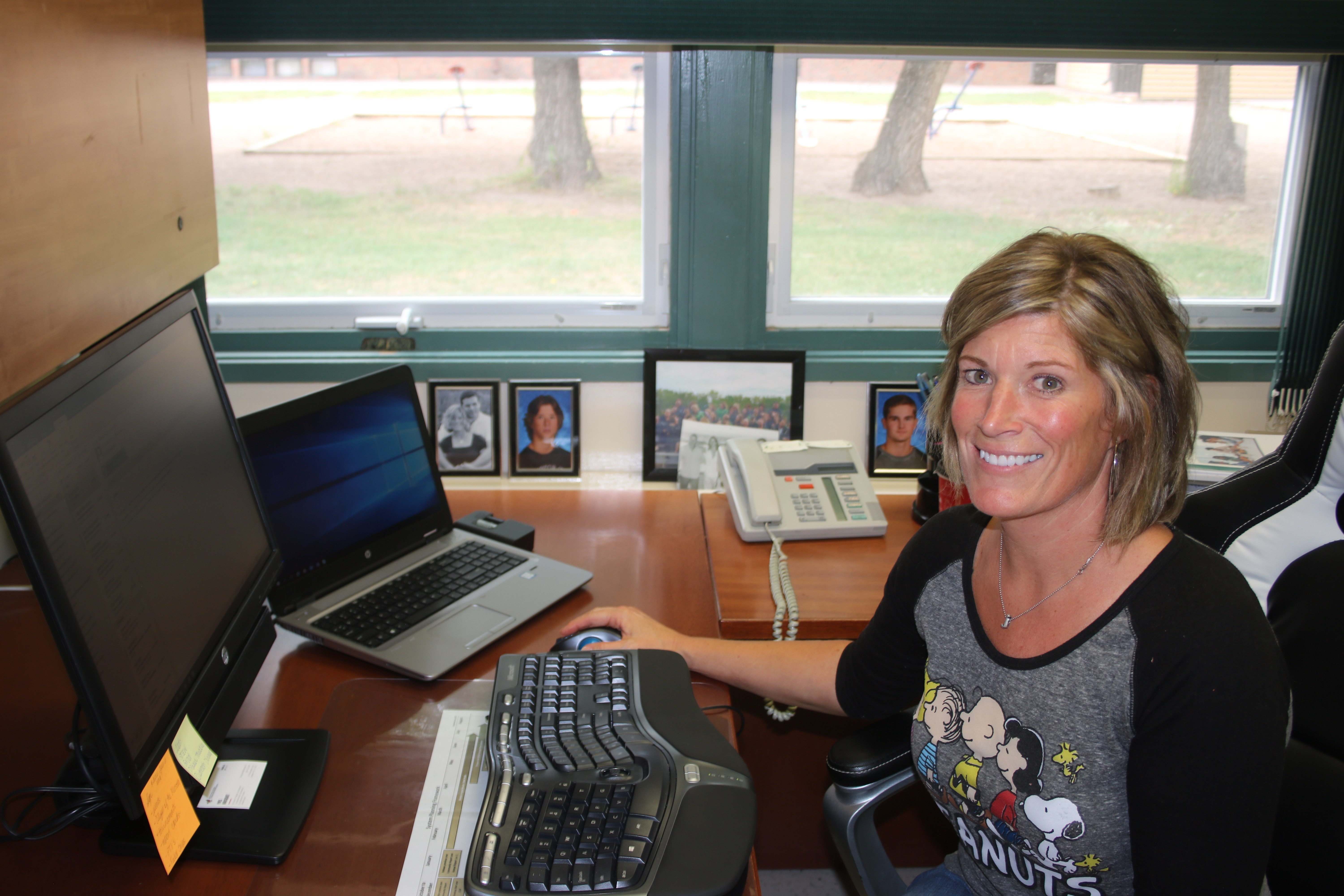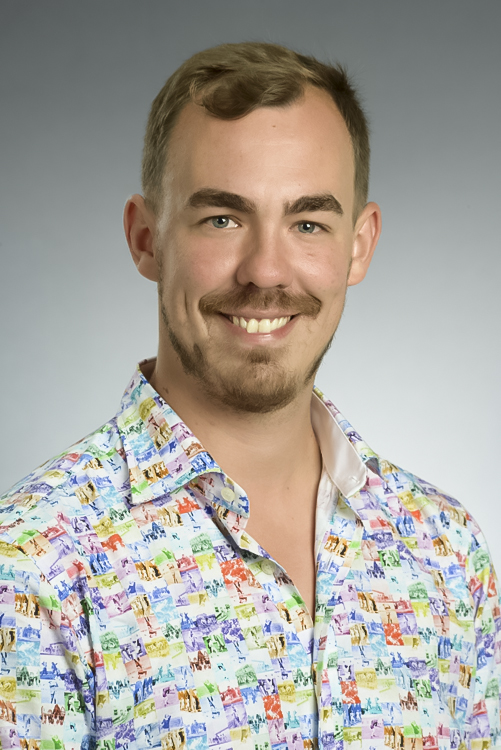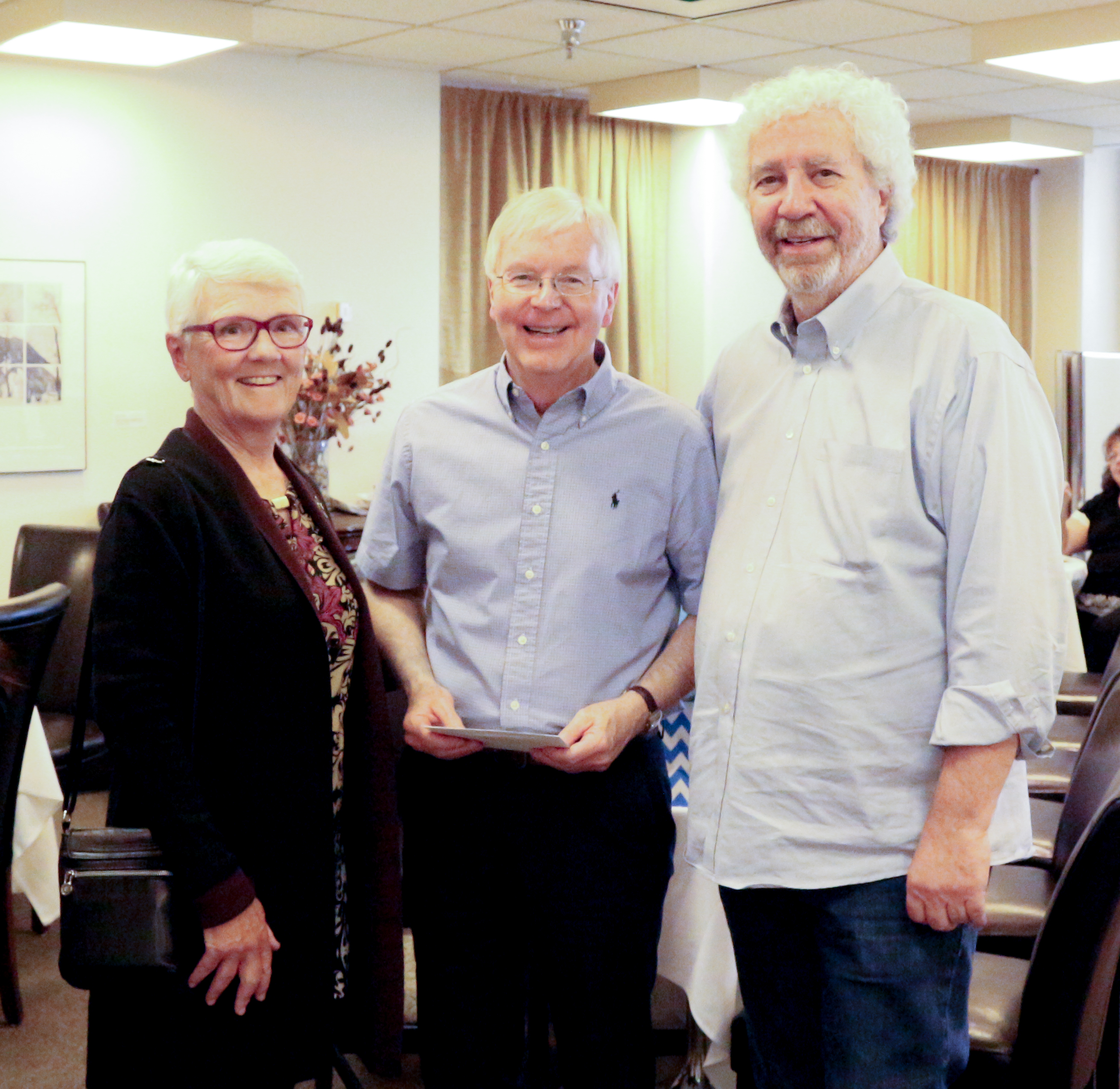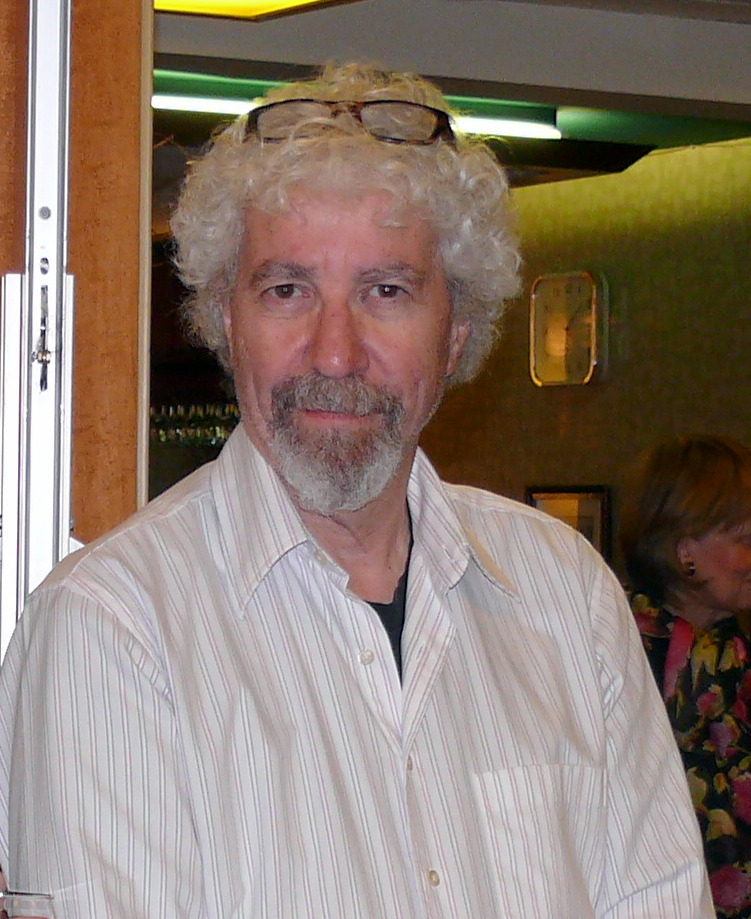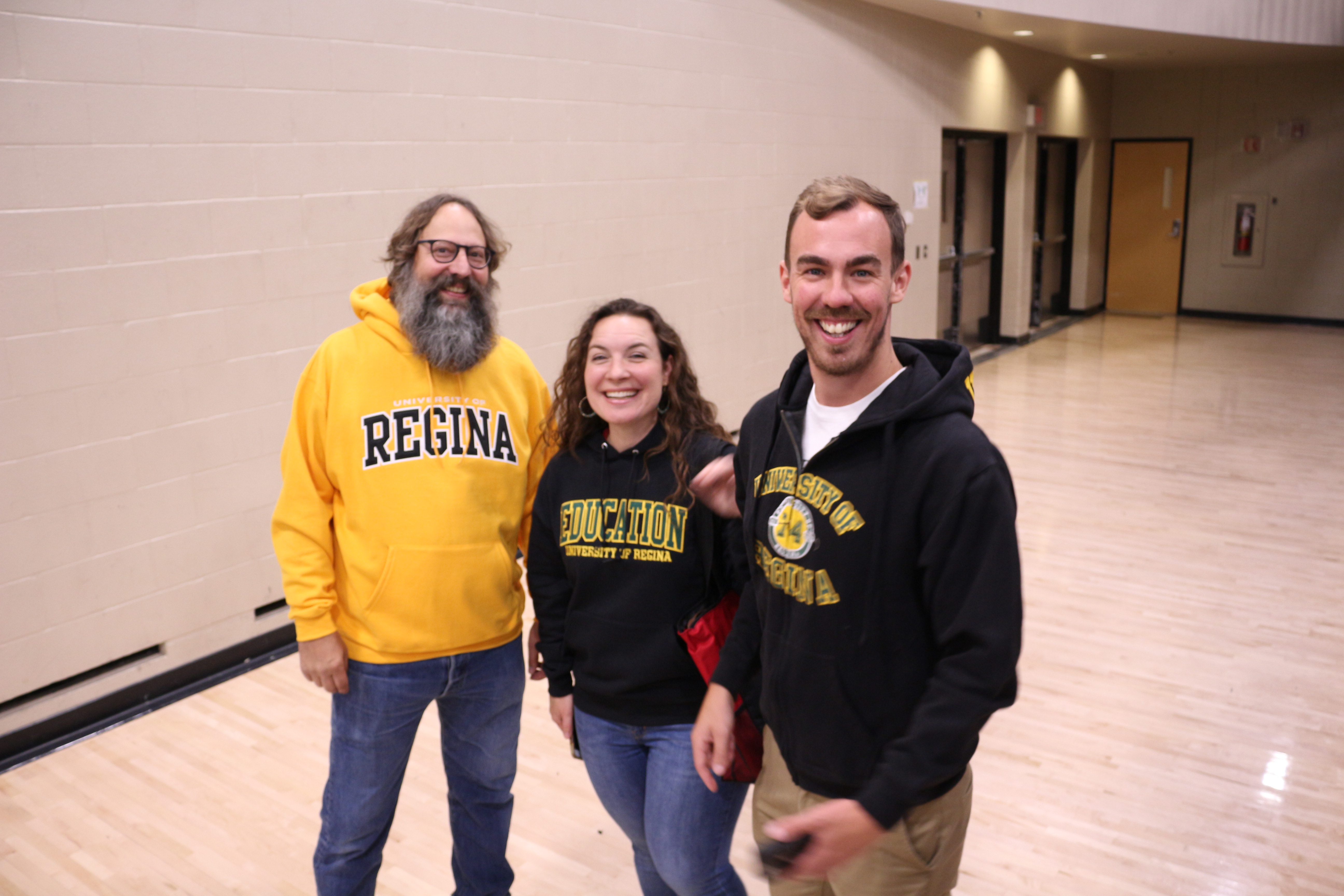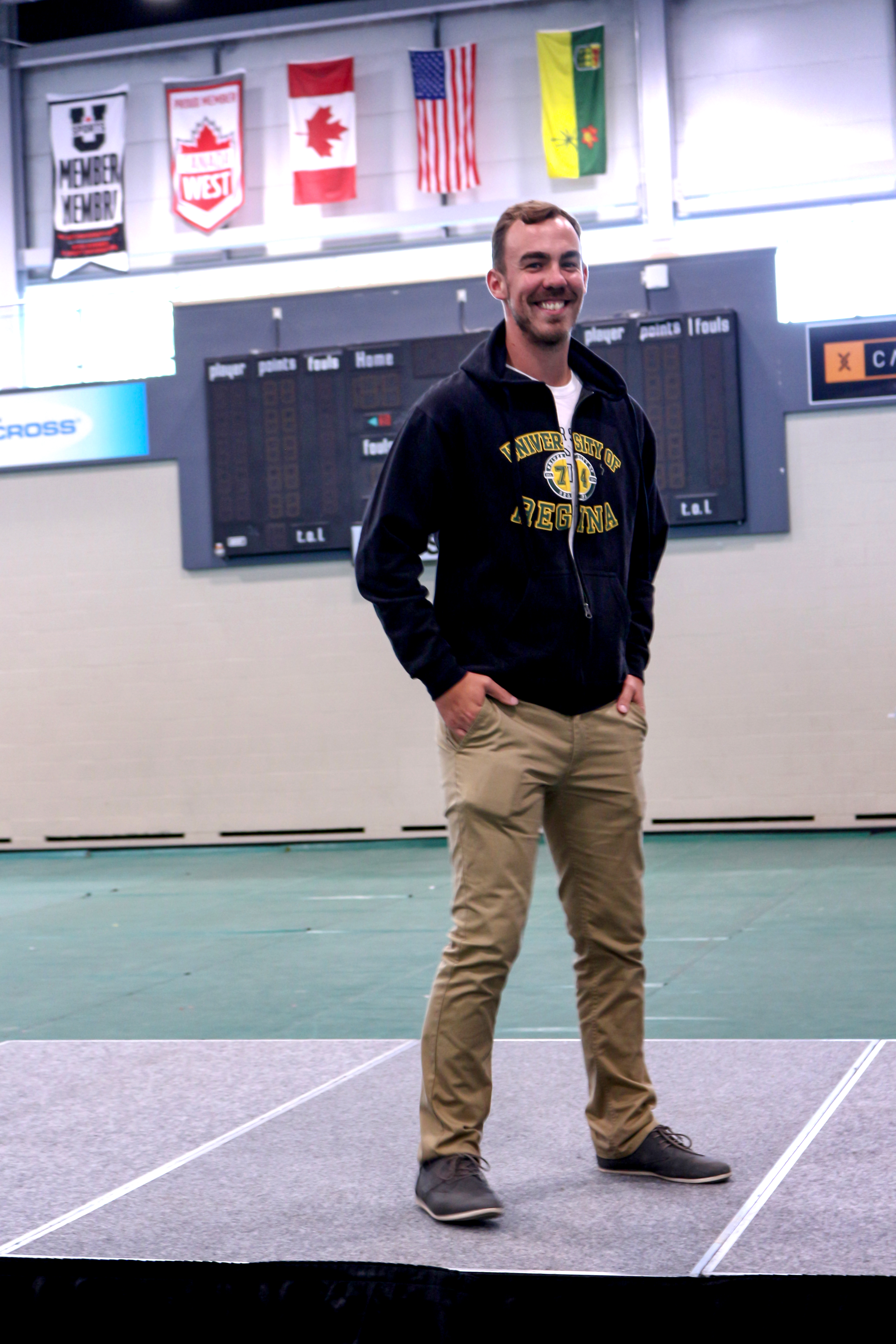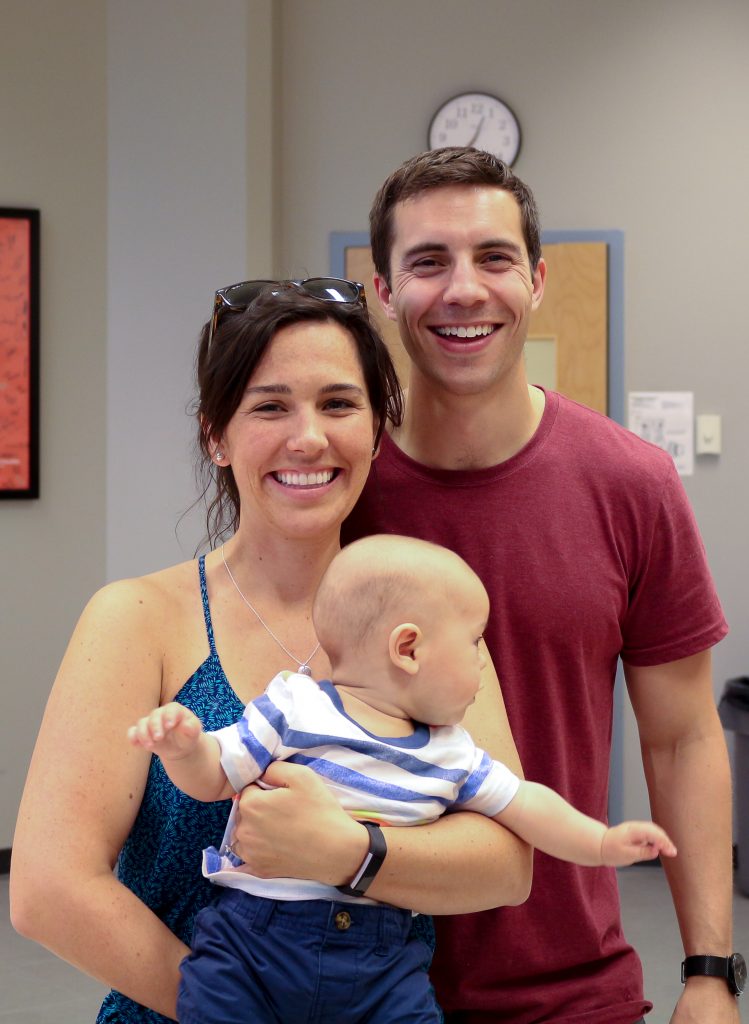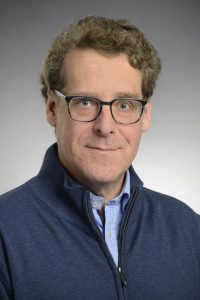
Teaching was something Jean Dufresne wanted to do from as far back as he can remember. The first university-trained teacher in his family, Jean says, “It started early for me. In Scouts, as a volunteer, even in the Naval Reserve, I was always placed in an instructional role.”
In terms of credentials, Jean’s path to a 35-year career as a teacher and then teacher educator was unusual: “I have a BA with a major in history and a minor in education,” says Jean, who graduated from Université Laval in Quebec City in the 80s.
Jean’s career included teaching social studies and history in both secondary and postsecondary settings, writing French immersion curriculum guides, and teaching in, and finally directing, the University of Regina’s Baccalauréat en Éducation française (le Bac) program. Jean became a specialist in language development and a specialist tutor for French tests. “I always thought I would be a history teacher and I became a French teacher. I was never the best at French in high school. Yet, I was lucky enough to be offered opportunities and flexible enough to give them a try,” says Jean.
These opportunities, Jean attributes to his relocation to Saskatchewan in the fall of ’86 to be with his future wife Anne Brochu Lambert, who was working with Radio Canada (French CBC). “There were 100 people like me in Quebec City. Here, I was special. In Québec, just one among others,” says Jean.
“I also came to see the prospects for becoming a teacher in Saskatchewan.” says Jean. To become a certified teacher here, Jean had to earn an extra 15 credits of French for the equivalent of a French minor. This he did through le Bac, becoming one of the students in the first cohort of the French education program in the final term. He did not know at the time that the longest stretch of his career would be with le Bac.
Jean was hired in ’87 at Dr. Martin LeBoldus where he taught mostly history and social studies until 1994, when he was seconded to the Ministry of Education for a 4-year project in which he wrote the curriculum guides for Secondary French Immersion (10, 20, 30, and Intégré A20 and B20). After this accomplishment, he went back to teaching, eventually returning to LeBoldus full-time and becoming department head in 2000/01.
Three years later, Jean was seconded to the le Bac program. Teaching at the University of Regina was a big transition. Jean says, “In 2003, school divisions were just starting to tighten their purses. The University felt rich by comparison. You could still print what you wanted to print. You were not counting your copies. Work was at another level, dealing more with adults. It was a welcome change. Same with the ministry, I was lucky. I’ve been lucky all my life. I worked hard; the harder you work the luckier you get. But luck is also a factor.”
Still, as a secondment, Jean didn’t know beyond his 2-year terms where he would be next. However, 2 years stretched into several years. As Jean says, “I ended up being lucky for 14 years. I also have my school division to thank for this. They allowed me to stay instead of recalling me, or asking me to resign.”
In 2017, at the 30-year mark with the Regina Catholic School Division, Jean retired and was officially employed by the University of Regina. Two years later, he accepted the role of director of le Bac, where he finished out his career.
The director’s role was challenging in many ways. “I wasn’t expecting to become le Bac director,” says Jean. “The Faculty suggested that I should apply, so I did. What I learned is that it took a lot of me. The price was steep. I really enjoyed the classroom teaching and dealing with my students with le Bac. I was essentially the pre-internship year secondary person, so I was able to teach a few courses with the same students, and be involved in a capacity that I understood: my courses, my old curriculum guide, my resources, my students—that part I enjoyed. Being a director, especially during a pandemic, became very demanding. There are aspects of the job, though it is essentially a program chair, that make it more challenging: For example, we have to budget the Federal Government funding and create annual financial reports.” Added to the situation was the loss of several staff members in le Bac (though since then le Bac has new staff members).
Moving online through the pandemic created another set of challenges. “You teach French education in Saskatchewan in French, so the environment is important. Some students flourished online but I think the majority did not and it did have consequences on language skills a little bit. We see the effect now with the internships; some students are in the classroom for the first time, and they are facing challenges that they haven’t met before,” says Jean.
Yet, the flip side of the challenges was the highlight for Jean: “There’s a good side: I finished my mandate, and my thanks to the faculty who trusted me enough to choose me as the director. That is important to me. It is hard work, but it is important, and I believe the work was done decently. This is certainly a highlight.”
Looking back, Jean remembers other interesting challenges/highlights: “When we did the program review, finishing it in 2006/07 with Bernard Laplante as director, that was challenging; that was interesting. We were looking at courses and programs, we tried to find a perfect mix of compulsory courses and electives and all that. We had language tests. Le Bac had good quality programs and we were growing. By 2019, le Bac had grown from 75 students to 166, but our resources didn’t follow so we had to be a little bit more modest and cap ourselves at 140.”
Reflecting further on the growth and changes he has seen in le Bac over the years, Jean says, “The first cohort of students going through the 4-year elementary French education program started in ’83. They did their second year at Université Laval in Quebec City. From the beginning, that ‘immersion year’ was important. In ’91, we created a secondary French education program. For le Bac, immigration really changed things around 2010. Francophone newcomers who wanted to become teachers came with individualized needs, and we had to adapt the program to help them achieve their goals. There is also a big difference between 2000 and 2020 in our approach to students. Recruiting and retaining students has become a survival issue, and we now do everything we can to recruit and keep students, which becomes a lot of extra work. In le Bac, we do tutorials to prepare students, we have really personalized services, small classes, and a team in Quebec City that follows them during their second year. The director goes to see the students in Quebec City each year and the deans are in touch with each other. We are trying to find alternatives to ensure every student who can be successful, is successful. This is also part of the Faculty’s philosophy.”
What Jean has learned over the years is that what matters in teacher education is “trust and personal contact.” Jean says, “Proper education is a professional relationship between people who are teaching and learning, and trust is important in that relationship. If students know and understand what we are doing and if they are respected, they go accordingly. If there is a lack of trust, and it happens sometimes, then it creates issues. When students first get out of the university they want to be the best teachers they can be; they’re really centered on their subject areas, but they figure out very quickly that relationship is key. There is no teaching without a relationship. Reconciliation helped us understand the weight, the heavy burden, of residential schools because there was a loss, or a lack of trust if there was trust in the beginning. If you don’t have trust, failure is almost certain.”
As parting advice, Jean recommends that the Faculty, “keep an eye on le Bac in the future. Continue to ensure that le Bac is staffed properly. Make sure French services are recognized and appreciated in the future as they are now, and not always seen as a burden even though it is extra work. La Cité is now a Faculty. This is great news; it means we now have La Cité colleagues to help us with faculty resources. However, there is a caveat, let’s be careful. We have to be sure that le Bac students are well-served by both Faculties. I hope the next dean will be able, as Dean Cranston has done, to figure out the role of le Bac program and make sure it has room to grow at the University of Regina.”
Overall, Jean’s feelings about his career are positive: “I’m very grateful to the Faculty, to le Bac program, and to Regina Catholic School Division because they’ve allowed me to grow in the profession. I understand things today I didn’t understand 20 years ago. For example, I understand more about reconciliation because I was part of this Faculty. I’ve had discussions with elders that I would not have had otherwise. I’m very grateful.”
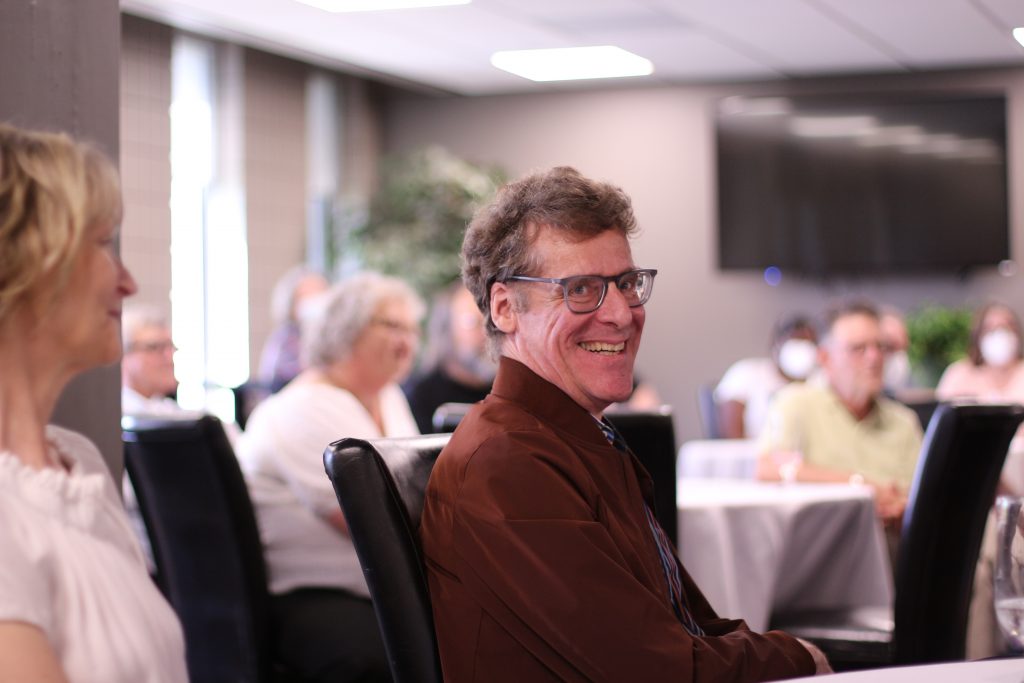
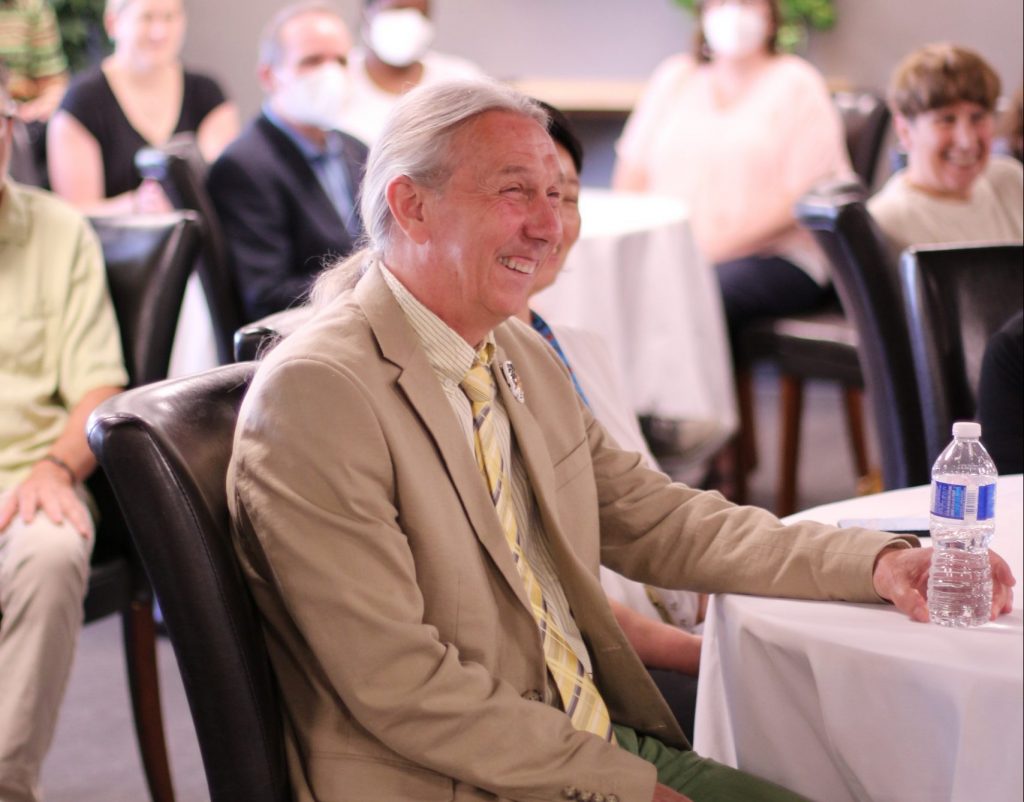
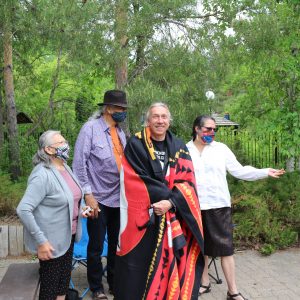
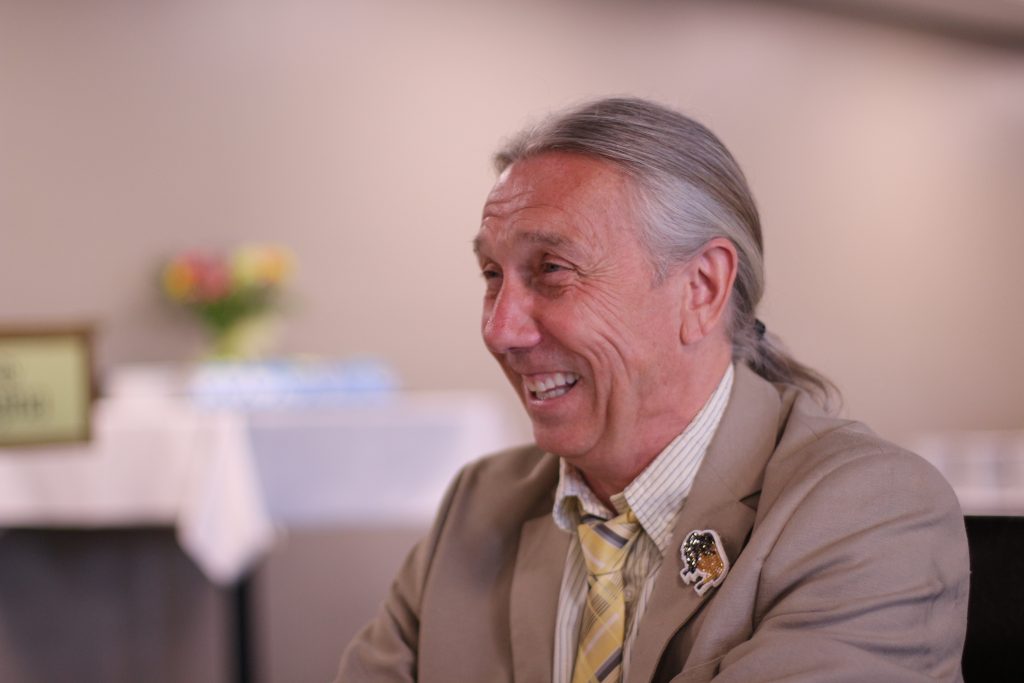
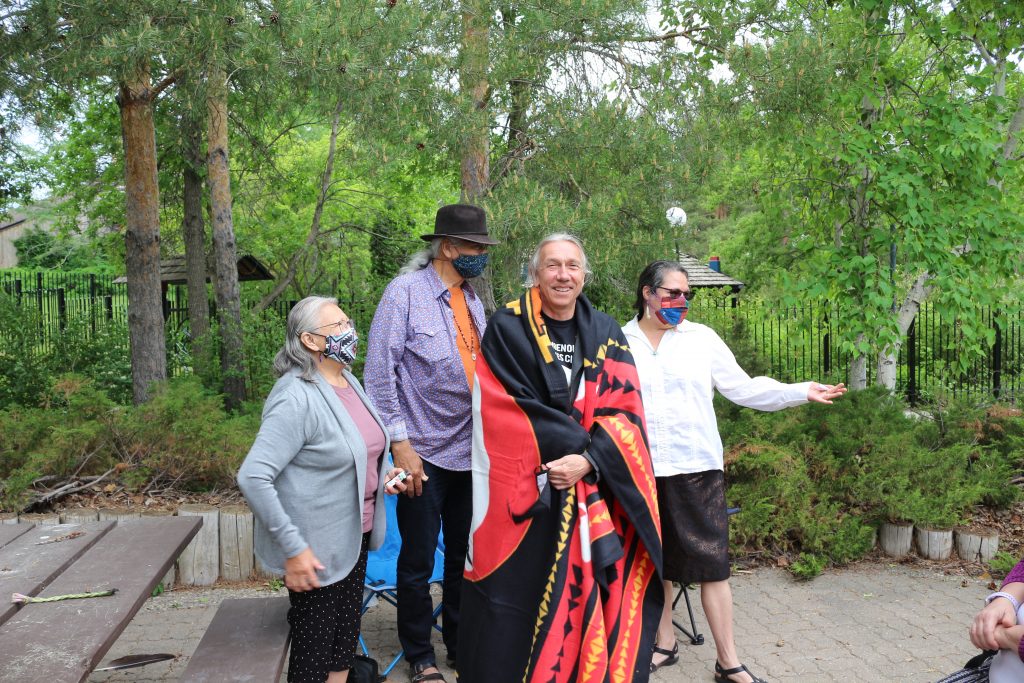
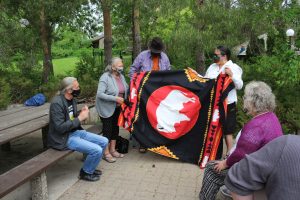
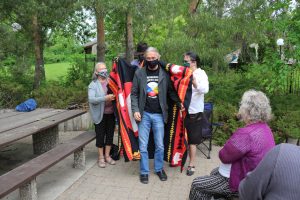
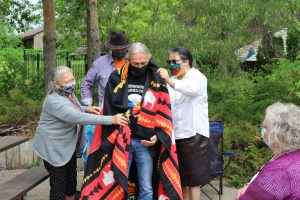
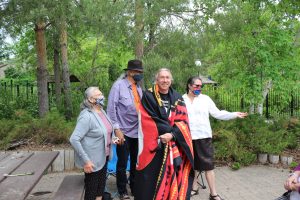
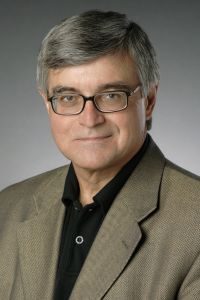 Prior to joining the Faculty of Education as an Assistant Professor in January 2007, Dr. Larry Steeves was a public servant for over 30 years in the K–12 education and government sectors. Steeves brought to his Faculty position a variety of experiences as a classroom teacher, coordinator of guidance services, principal and a director of education. As well, Steeves brought his experiences within the Saskatchewan provincial government, including time as Associate Deputy Minister in Government Relations and Aboriginal Affairs, Deputy Minister of Northern Affairs, and Associate Deputy Minister in Learning, including responsibilities as the Saskatchewan representative to the Board of Governors of the First Nations University of Canada.
Prior to joining the Faculty of Education as an Assistant Professor in January 2007, Dr. Larry Steeves was a public servant for over 30 years in the K–12 education and government sectors. Steeves brought to his Faculty position a variety of experiences as a classroom teacher, coordinator of guidance services, principal and a director of education. As well, Steeves brought his experiences within the Saskatchewan provincial government, including time as Associate Deputy Minister in Government Relations and Aboriginal Affairs, Deputy Minister of Northern Affairs, and Associate Deputy Minister in Learning, including responsibilities as the Saskatchewan representative to the Board of Governors of the First Nations University of Canada.